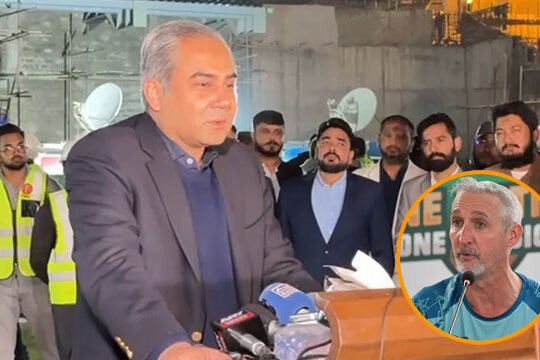In a significant move to protect the water supply of millions of people, the Sindh Environment Protection Agency (SEPA) has issued closure notices to 25 industries in the Kotri SITE area, Jamshoro district, after discovering that hazardous wastewater from these industries was being discharged into the KB Feeder Canal. This canal is a crucial source of drinking water and irrigation for the residents of Karachi and other areas in Sindh.
The Alarming Situation
Imran Abbassi, the SEPA in-charge for the Hyderabad region, revealed that the affected industries have been discharging over 2 million gallons of toxic wastewater per day into the canal. This has raised serious concerns about the potential health risks to millions of people who rely on this water source. The discharge of untreated wastewater into the KB Feeder Canal was triggered by the shutdown of the Combined Effluent Treatment Plant (CEPT) over a month ago.
Abbassi explained that while some factories have installed in-house treatment systems, the majority of these systems are not operating at the required standards to adequately treat the wastewater. The failure of these systems to meet the Sindh Environment Quality Standards (SEQS) poses a significant environmental threat.
SEPA’s Response and Legal Actions
As a result, SEPA has taken swift action, ordering 18 of the 25 identified industries to immediately cease operations. The management of all 25 units has been summoned to Karachi for a hearing before SEPA Director General Naeem Ahmed Mughal. Additionally, the managing director of SITE Limited and the department’s chief engineer, along with the chief engineer of the irrigation department, have been served notices to explain their failure to prevent the pollution and to maintain the CEPT.
This development follows a history of issues with the CEPT, which was built as the province’s first such plant at a cost of approximately Rs1 billion. The plant, mandated by a Sindh High Court order in 2007, was intended to treat industrial effluent before it could be discharged into water bodies. However, the plant’s operation has been marred by irregular funding and alleged corruption, leading to its eventual shutdown.
A History of Corruption and Mismanagement
The CEPT was initially approved in April 2010 with a budget of Rs667 million, but the cost escalated to around Rs1 billion. The project was plagued by delays and inefficiencies, culminating in a corruption investigation by the Sindh Anti-Corruption Establishment (ACE). In September 2019, an FIR was registered against SITE officials and the contractor, accusing 11 individuals of corruption under various sections of the Pakistan Penal Code (PPC).
Despite these efforts, a report by SEPA in August 2022 highlighted that the CEPT’s treatment process did not meet the SEQS, further underlining the systemic issues plaguing the plant’s operation. The partial funding from SITE Limited, which was responsible for managing the plant in coordination with the Kotri Association of Trade and Industry (KATI), also remained inconsistent, contributing to the plant’s operational failures.
The Path Forward
The current situation has underscored the urgent need for effective management and oversight of industrial waste treatment in Sindh. The closure notices issued by SEPA represent a critical step in enforcing environmental regulations and protecting the health and safety of millions of people.
However, the larger issue of ensuring that industrial units comply with environmental standards remains a challenge. SEPA’s actions highlight the necessity of robust regulatory mechanisms and the enforcement of legal standards to prevent future environmental crises.












